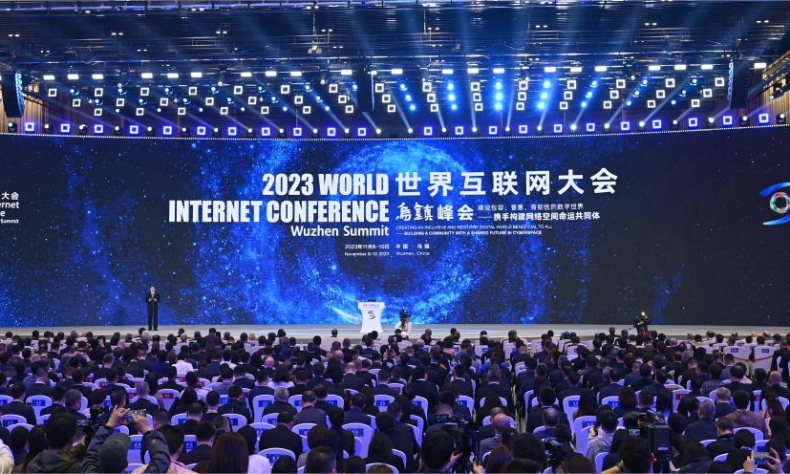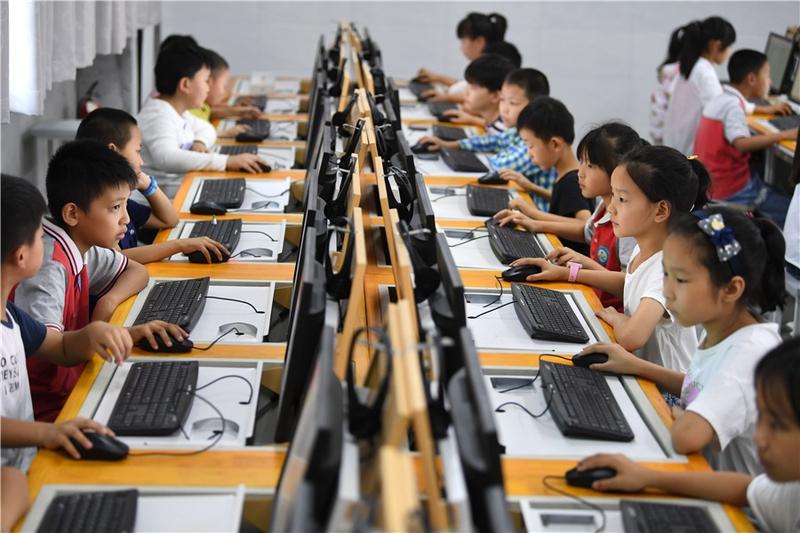Building a Culturally Diverse and Inclusive Silk Road on the Internet

Today, more than ever, the digital revolution must be an inclusive sustainable development revolution that brings us closer and does not divide us, that builds bridges among cultures and does not burn them.
Let me start by saying how happy I am to attend the 10th World Internet Conference and speak about network communication, civilisation exchange and mutual appreciation. It will not come as a surprise, if I say that, the topic of this conference resonates deeply with my experience as Director General of UNESCO.
It is befitting to mention that today’s Conference is being held after the successful celebration of the 10th Anniversary of the Belt and Road Initiative, in which I was honoured to participate.
It brings me back to President Xi’s visit to UNESCO in March 2014 and his landmark speech, affirming that “we live in a world with different cultures, ethnic groups, skin colours, religions and social systems, and the people of various countries have become members of an intimate community of shared destiny.”
These words echoed with the Silk Road project that UNESCO started more than 30 years ago and its wondrous story of encounters – between people, cultures, religions and knowledge. These encounters have shaped civilizations over the ages, catalyzing inventions and fertilizing intellectual scholarship. They gave birth to literary and scientific treasures, to traditions and artistic practices that have been passed across generations.
Today, in our digital era, this interdependence is a much stronger reality — and every day we see that new skills and competence are needed to live together in a world of diversity, complexity and rapid change. The digital revolution is already changing how we communicate, how we create and share knowledge, and how we relate to each other.
New IC technologies are a transformational force to build inclusive knowledge societies and to move forward progress in health, education, climate and overall in sustainable development as adopted by the UN Agenda 2030. But let me emphasize that today, more than ever, the digital revolution must be an inclusive sustainable development revolution that brings us closer and does not divide us, that builds bridges among cultures and does not burn them.

We need broadband to bridge divides and not deepen them — especially for those who are lagging behind.
We need broadband that ensures equal access to education, that enhances the quality of learning across the world, because these are the strongest foundations for sustainability and peace.
One of the important challenges with the rapid advancement of AI is how to introduce within the digital platforms the issues of values, mutual respect and global ethics, how to make it culturally diverse and avoid the danger of entrenching existing biases and prejudices on the newly emerging platforms.
While new skills and reskilling are important for a new digital economy that is in the making and much faster than we envisaged, the challenge is how to instil in its digital content values that are of enormous importance for humanity particularly now in a post Covid-19 world – ethics, solidarity, empathy, respect for the other, a strong sense of humanity bound by common challenges and common destiny.
Earlier this year, President Xi Jinping launched a new “Global Civilization Initiative”, that demonstrates again China’s vision and leadership in promoting dialogue among civilizations, enhancing cultural diversity and building a harmonious world, and provides a good solution for us to meet common challenges.
I believe we need a new type of Silk Road on the Internet that is culturally diverse, inclusive, multilingual, that will allow us to share knowledge and intercultural experiences, to collaborate and exchange ideas. Because, acceptance and recognition of cultural diversity, particularly through innovative use of media and information and communication technologies, are conducive to dialogue among civilisations and cultures, respect and mutual understanding.
The article is an excerpt of the speech delivered by Irina Bokova, former director-general of UNESCO, at the Forum on Internet Communication, Cultural Exchanges and Mutual Learning, during the 2023 World Internet Conference Wuzhen Summit on November 9, 2023. The article has been edited for length and clarity.
 Facebook
Facebook
 Twitter
Twitter
 Linkedin
Linkedin
 Google +
Google +










